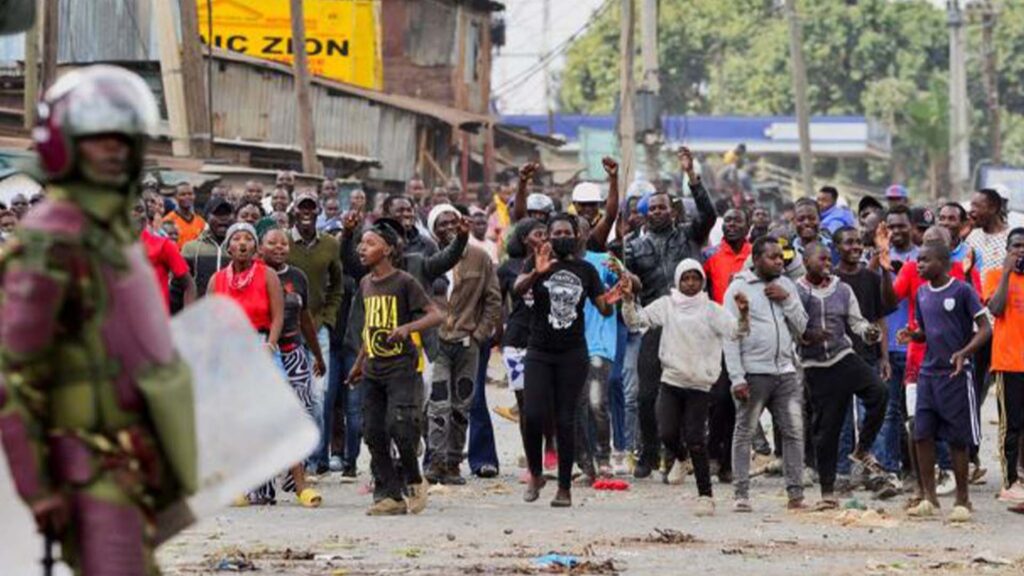
Opposition supporters in Kenya took to the streets to protest against the rising cost of living and tax increases on Thursday. The protests come after clashes between demonstrators and the police on Wednesday, which resulted in the arrest of at least 300 individuals.
The ongoing demonstrations from Wednesday to Friday mark the third round of protests initiated by the opposition this month in Kenya.
There were reports of several individuals being shot, with some possibly sustaining fatal injuries during Wednesday protests. Additionally, several senior opposition leaders were arrested during the demonstrations.
According to The Nation newspaper, Odinga’s Azimio party urged its supporters to gather at Huruma and Kangemi grounds, as well as Central Park in Nairobi.
Meanwhile, NTV broadcasted a substantial police presence, equipped with anti-riot gear, at Jacaranda grounds in Nairobi, a location that has previously been used for opposition rallies.
On Thursday, numerous shops in Nairobi’s central business district resumed operations. Additionally, schools in Nairobi, the port city of Mombasa, and Kisumu, the country’s third-largest city, reopened after being closed on Wednesday.
Following his fifth consecutive election defeat to President William Ruto in August last year, Odinga has continuously called for acts of civil disobedience against the government. He accuses the government of exacerbating the cost of living and concentrating power, fueling his calls for resistance.
While Ruto has vowed to advocate for the welfare of the impoverished, the cost of essential commodities has significantly escalated during his administration.
During the two prior rounds of protests earlier this month, a minimum of 15 people lost their lives. Civic leaders have issued warnings regarding sporadic incidents of apparent ethnic-based attacks, highlighting the country’s history of deadly political violence.
On Thursday, Kenyan newspapers featured a joint editorial titled: “Let’s save our country.”
“President William Ruto and opposition leader Raila Odinga, in particular, owe it to themselves and to the people of Kenya to consider if they want more blood on their individual hands,” part of the editorial read.
